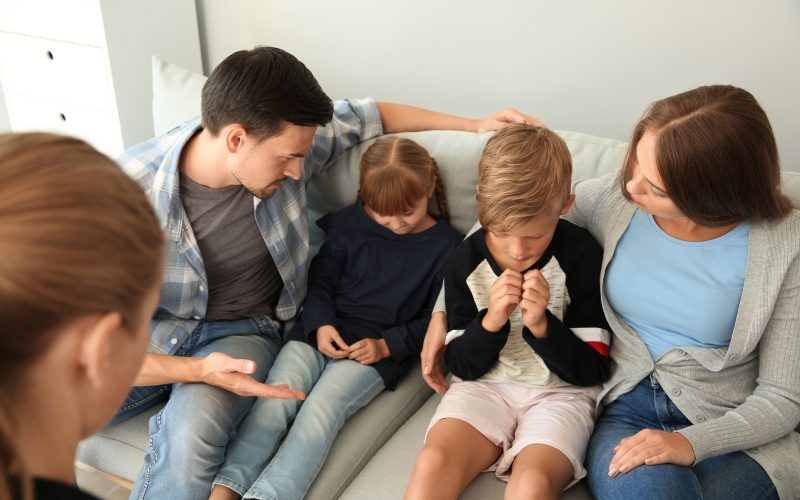A significant part of education lies in how we, as adults, manage mistakes and provide children with the opportunity to learn from them.Overprotecting them or fixing every issue on their behalf robs them of the chance to grow and become independent.How can we help them learn from their mistakes and cultivate a growth mindset that contributes to developing essential skills for our children’s long-term success and happiness?.
From the moment they come into the world, we love our children unconditionally and support them as they learn to sit up, crawl, and stand; we guide them in making friends; we teach them how to write their names; we comfort them whenever they get hurt and soothe each bruise.Our list includes numerous ways to nourish, support, teach, and care for our children.However, even though it may seem uncomfortable for some, children also need learning opportunities.Making mistakes is a way to become confident, capable, happy, and successful.
When we believe we are making mistakes, we discover how not to do things.And not only that.
Consider the following example: a child argues with a friend.Even though it is unpleasant, children learn to reflect on their own actions, manage their emotions, understand the other’s perspective, solve problems, and make compromises.
If parents are quick to resolve these issues, children miss the opportunity to develop critical skills that arise from learning from mistakes or failures.Moreover, children who are not given the chance to struggle or fail or to understand what happened tend to have low self-esteem.These children are more likely to fear failure and be less willing to try new things, simply because they do not know how they will fare.
Social and Emotional Skills
When children are given the opportunity to make mistakes, they are allowed to develop social and emotional skills.Of course, you should not jeopardize their safety or neglect to provide support when encouragement is needed.However, the role of parents should be to support and guide rather than do for them what they need to learn to do themselves.Because when things don’t work out or they face a challenge, children have the opportunity to develop their coping and resilience skills.Coping skills are like muscles; we do not know how strong they really are until we need to use them.
Making mistakes is normal.Redefine failure!
It is normal to make mistakes or not achieve all the goals we set for ourselves.However, how we perceive failures affects how we will manage those situations in the future.Understanding mistakes as opportunities from which we can learn – rather than seeing them as failures – can help us feel capable and in control.
Redefining mistakes can help us manage future errors more effectively.As parents, we can assist children in figuring out how to approach mistakes constructively.By openly discussing our own mistakes regularly, children will learn that mistakes are learning opportunities rather than things to be ashamed of.
How to Help Your Children Learn from Mistakes
Allowing children to fail is not always easy for parents.The family we grew up in and cultural influences have impacted how easily or not we can navigate this issue.Some of us grew up in families where learning from mistakes was an everyday occurrence, while others did not have opportunities to fail.Fortunately, you do not need to create these scenarios; they exist in everyday life.Here are some examples:
How to Transform the Shame of a Mistake into Learning Opportunities for Children
Transforming the shame caused by a mistake into learning opportunities for children is a delicate process that involves emotional support and guidance.Here are some ways that parents or educators can help children overcome shame and learn from their mistakes:
1.Normalizing Mistakes.
Explain to children that mistakes are a natural part of the learning process.Tell them that everyone makes mistakes, including adults, and that each mistake is an opportunity to become better.
2.Encouraging a Growth Mindset.
Teach children to see mistakes as an opportunity to improve their skills, rather than as a personal problem.This helps them realize that effort and perseverance are the keys to success.
3.Separating the Mistake from the Child’s Identity.
Help the child understand that making a mistake does not define them as a person.It is important to separate behavior or actions from self-worth.
4.Discussing the Mistake in a Calm and Constructive Way.
Approach the child’s mistakes without making them feel ashamed or guilty.Instead, discuss what happened and how they could act differently in the future.Be calm and empathetic.
5.Providing a Personal Example.
Share your experiences where you made mistakes and how you learned from them.Children will learn that mistakes are part of the growth process and that they can learn from them.
6.Praising Effort and Progress.
Instead of focusing solely on the outcome, encourage effort and progress.Appreciate the child’s repeated attempts and determination to learn from mistakes.
7.Creating a Safe Environment for Making Mistakes.
Create an environment where children feel safe to make mistakes without fear of severe criticism.Such an environment will help them open up and learn more effectively.
By applying these strategies, children will learn to manage shame in a healthy way, develop emotional resilience, and view mistakes as an essential part of the learning process.

